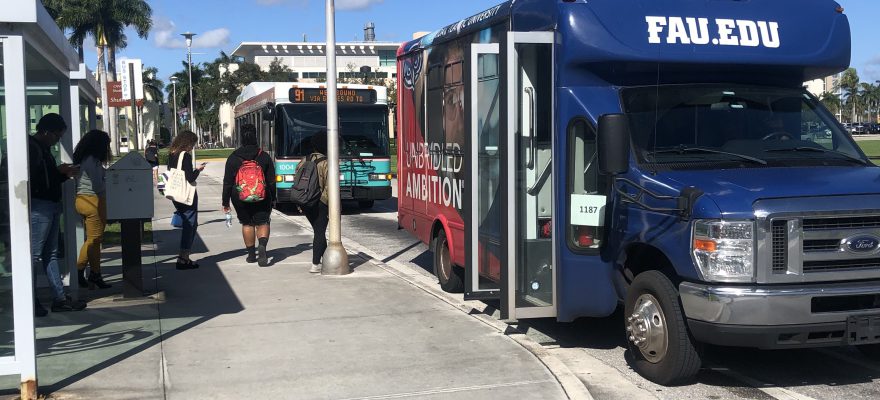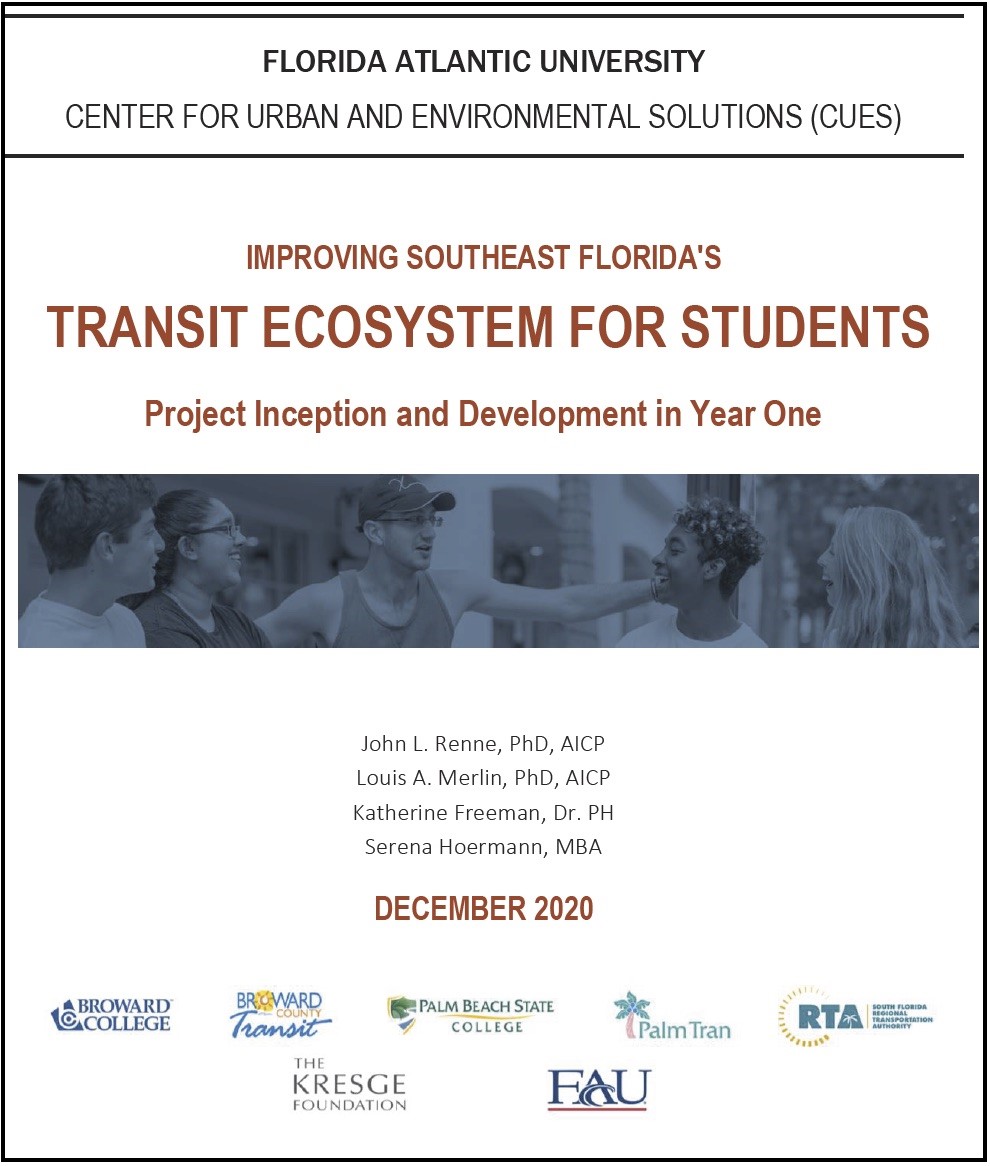Transportation Solutions for Students

FAU received a $375,000 implementation and research grant from The Kresge Foundation to identify, address and evaluate transportation solutions for students.

|
Merlin, L. A., Freeman, K., Renne, J., & Hoermann, S. (2022). Clustered randomized controlled trial protocol of a Mobility-as-a-Service app for College campuses . Transportation Research Interdisciplinary Perspectives , 14, 100572. |

|
The team reports on implementing the Improve Your Commute Student Ambassador strategy to diversify and increase participation in the study's randomized controlled trial. Hoermann, S., Renne, J. L., Freeman, K., Merlin, L. A., Dzhurova, A., & Lopez, P. (2024). Peer Engagement: On Reflecting Student Diversity in a Research Trial. International Journal of Qualitative Methods , 23 , https://doi.org/10.1177/16094069241257940 |

|
The FAU team published a white paper describing the project activities to date: development and pilot testing of the research protocol and design and first stage development of the MaaS mobile app (Read the white paper). Researcher Louis Merlin, PhD describes how mobility-as-a-service (MaaS) has the potential to improve the lives of students and the entire South Florida region (Read the article). |
On December 18, 2019, FAU’s Center for Urban and Environmental Solutions kicked off the collaboration with two area colleges and three transit agencies: Broward College, Palm Beach State College, the South Florida Regional Transportation Authority (SFRTA, which operates Tri-Rail), Palm Tran, and Broward County Transit. The newly formed Transit Partnership met at the FAU Boca Raton Campus to align goals and opportunities.

Local students who use transit often face lengthy travel and wait times due to inadequate bus and train schedules, while many more students who buy vehicles spend their limited incomes on car payments, gas, insurance and vehicle maintenance in a highly congested region. Of the 140,000 students at the three participating institutions, more than 40% received Pell grants, and more than 50% are students of color.
With its partners, FAU will first engage a transit app firm to customize a mobile app that helps users overcome the fragmented public transit system by recommending trip plans that combine real-time data on all existing modes of transit (buses, trains, walking, biking and Uber/Lyft). A second phase will layer in new transit options, such as new shuttle schedules and electric scooters, to address identified gaps in the transportation ecosystem. FAU transit researchers will examine the effects of the app and any new transit solutions on students’ commuting behavior and on access and success in higher education.
As one of two implementation and research grants, FAU stood out because of its ambitious scale in terms of the number of students served and the multi-city, multi-agencies collaboration and the innovative transit solutions. In addition, if proven effective, the partners plan to sustain and scale the transit solutions through a mix of institutional support and public dollars from a new sales tax dedicated to transportation solutions. In addition, because the FAU project leaders are transit, not higher education, experts, their publications will introduce to the transit field the idea that transit solutions may affect student success.